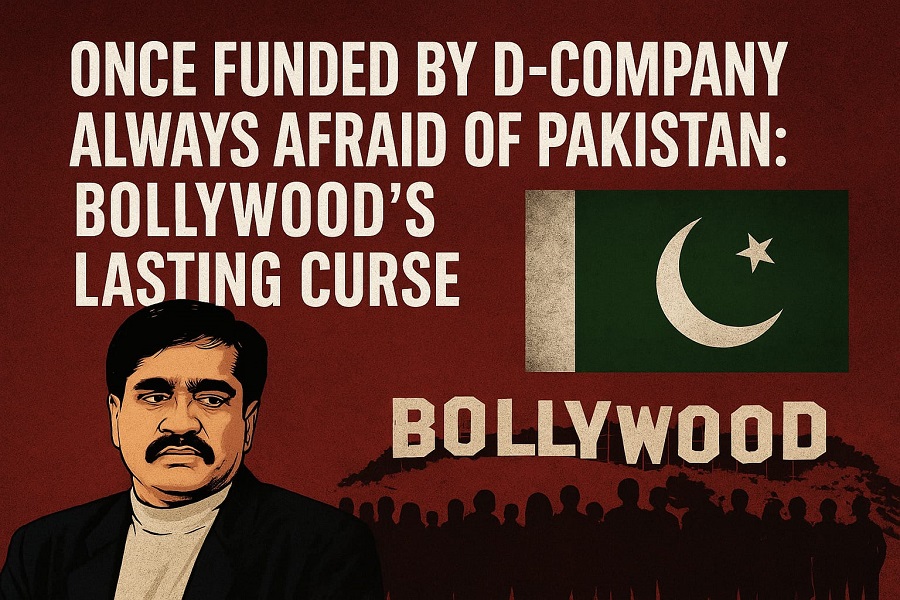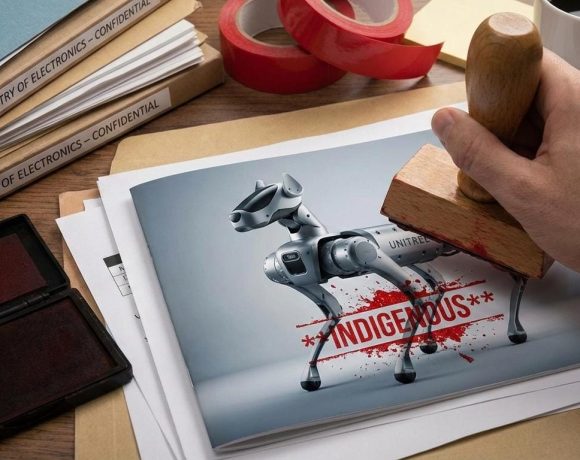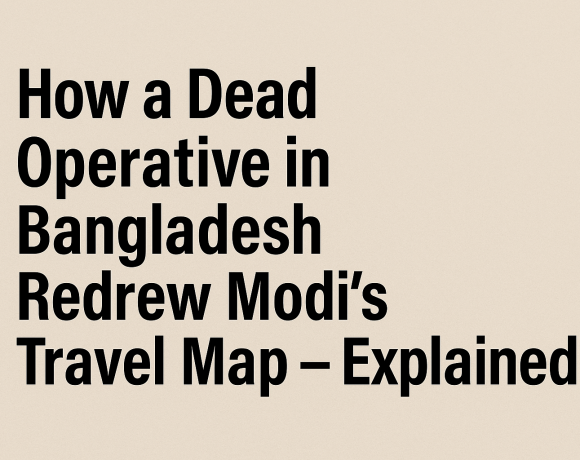
Once Funded by D-Company, Always Afraid of Pakistan: Bollywood’s Lasting Curse
The silence was deafening. As blood soaked the earth of Pahalgam, as 26 innocent lives—majority of them Hindus—were butchered after being religiously profiled, Bollywood’s reaction was a familiar, tiresome routine. Heart emojis. Prayers for “peace.” Sermons on not “spreading hate.” But not a single word naming Pakistan. Not a whisper about Lashkar-e-Taiba. Not a syllable acknowledging the ideological hatred that pulled the trigger. It wasn’t a coincidence. Bollywood’s cowardice is not a one-off act of diplomatic politeness. It is the tragic legacy of its cursed entanglement with Dawood Ibrahim’s D-Company—an unbroken chain of psychological enslavement that continues to bind the industry even when the blood on Indian streets screams for justice.
Once upon a time, Bollywood was strapped for cash. In the 1980s and early 1990s, before structured studio systems and banking channels existed, producers and directors needed money. Dawood Ibrahim offered it—with a smile and a loaded gun behind it. Films were financed through underworld cash, often at the cost of creative and moral autonomy. Rishi Kapoor admitted meeting Dawood. Pictures emerged of Bollywood’s elite partying with India’s most wanted criminal. Directors were forced to cast certain actors. Producers made movies with underworld blessings. Stars danced at Dawood-hosted parties in Dubai. And Bollywood, knowingly or unknowingly, sold a piece of its soul for survival.
Then came 1993. The Mumbai bomb blasts orchestrated by Dawood and funded by Pakistan’s ISI ripped apart the financial capital of India. Hundreds dead. Thousands maimed. And yet, stunningly, Bollywood did not rise up against the hand that had once fed it and now stained its own backyard with blood. There were no organized protests against Dawood. No boycott of his Dubai gatherings. Instead, Bollywood quietly distanced itself, swept the memories under the carpet, and went back to business as usual. Dawood Ibrahim fled to Karachi, took Pakistani citizenship, continued financing terror, and Bollywood continued promoting the idea of “art knows no boundaries” whenever Indo-Pak relations were questioned.
The recent Pahalgam massacre is not an isolated event. It is merely the latest reminder of the ideological war Pakistan and its terror proxies have unleashed on India. Eyewitnesses confirmed that terrorists asked tourists to recite the Kalma and checked circumcision status to identify Hindus before executing them. The Pakistani Deputy Prime Minister, Ishaq Dar, even went so far as to call these terrorists “freedom fighters.” And yet Bollywood’s superstars and social media darlings offered nothing more than hollow, sanitized, feel-good statements about “humanity” and “peace.” No one dared to name Pakistan. No one dared to even mention radical Islamic terror. The ghosts of Dawood’s favors from the past still seem to hover over their carefully curated Twitter accounts.
The truth is that Bollywood’s cowardice has evolved into a business model. Many celebrities fear losing endorsements and performances in Middle Eastern countries if they are seen as criticizing anything remotely Islamic. Many cling to the outdated idea that romanticizing Pakistan will win them applause from Western media outlets desperate to push a “both sides” narrative. Some still shudder at old underworld memories even though the D-Company’s influence on Bollywood financing has drastically declined. Bollywood elites, trapped in an echo chamber of PR consultants and liberal activists, have failed to understand that New India has moved on. This is not the India of the 1990s. Public anger now is not transient noise; it is deep, ideological, and permanent.
The public has already delivered its verdict. Boycotts. Flops. Erosion of trust. Films like Laal Singh Chaddha, Dunki, The Archies collapsed not just because of content failure, but because the audience saw through the arrogance and cowardice. Audiences today can smell insincerity a mile away. They know when their pain is being ignored and when fake sermons are being delivered from ivory towers. Bollywood is no longer seen as the voice of India; it is increasingly seen as an elitist club, detached from ground realities, pandering to international applause while turning its back on domestic tragedies.
Bollywood now stands at a crossroads. It can either break the curse by standing with its own people, by daring to name Pakistan for what it is—a terror-exporting rogue state—and by shedding its decades-old Stockholm syndrome. Or it can continue to rot in self-inflicted irrelevance, a hollow industry clapping for itself while empty cinema halls echo its slow death.
This is not just about one massacre, one hashtag, or one bad Friday at the box office. This is about the soul of an industry that once called itself the mirror of India. Today that mirror is cracked, smudged, and deliberately turned away from the real face of Bharat. When Hindus are profiled and slaughtered in Kashmir, and the blood of innocent civilians cries out for justice, an industry that cannot even name the killers has no moral right to preach about peace, love, or humanity. Silence in the face of evil is not neutrality; it is complicity.
Bollywood’s elite may find comfort in global PR machines and foreign awards. They may still win invitations to film festivals where shallow smiles are exchanged under chandeliers. But back home, in the small towns and cities that once worshiped them, something far more valuable is slipping away: respect. Trust. Belonging. No amount of Netflix contracts or Dubai concerts can ever replace the affection of a betrayed audience.
The choice is simple but brutal. Bollywood can either reclaim its soul by standing unapologetically with its people, calling out Pakistan’s terror sponsorship without hiding behind euphemisms, or it can keep scripting its own tragic downfall, frame by frame, reel by reel. In New India, cowardice is not fashionable. Betrayal is not forgotten. And history, ruthless as ever, is preparing to roll the credits on an industry that refused to stand when it mattered most.
If Bollywood continues to choose silence over truth, it must be ready to face silence in return—at the ticket counters, in living rooms, and ultimately, in the hearts of the people it once claimed to entertain.


















